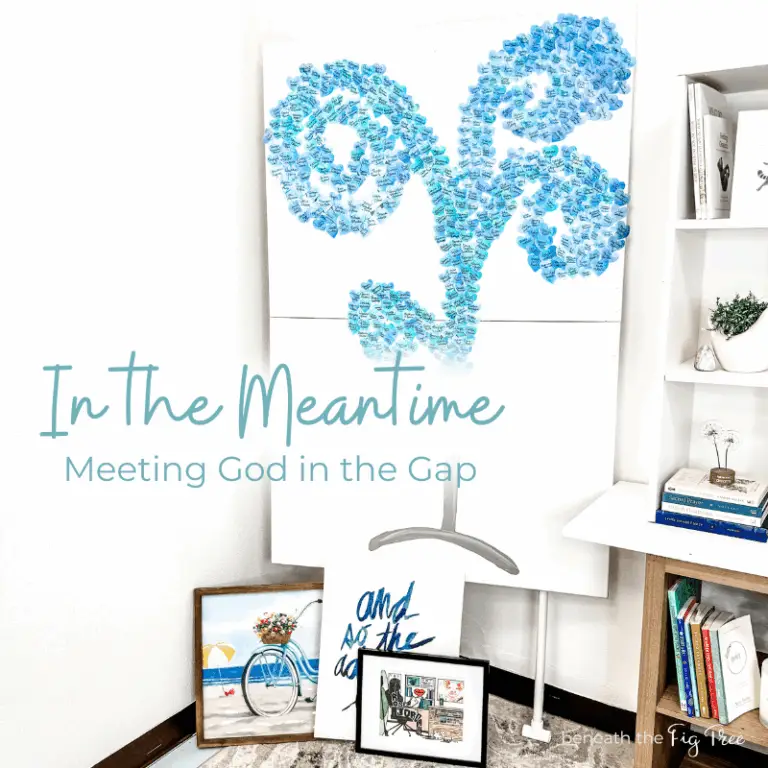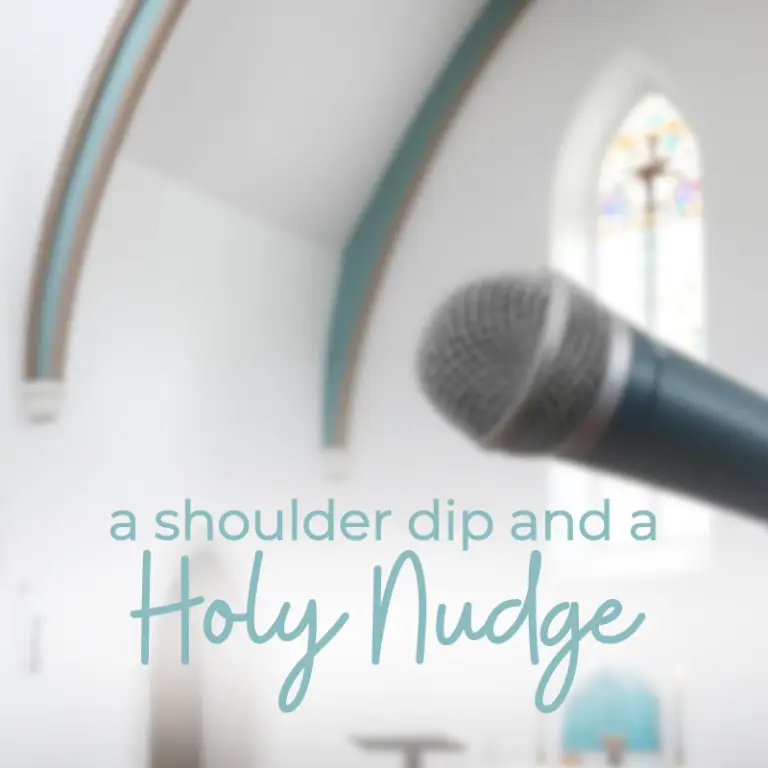There are several methods of Christian meditation, but all are simply a way of spending intentional time with God.
Mary treasured all these things in her heart and often pondered what they meant.
Luke 2:19
Christian Meditation
I have a confession to make. I’ve often been curious about meditation, especially lately as Mineral Wells – the town where I am Director of Tourism – is shifting back to being a destination for wellness.
Meditation and mindfulness are key practices of those seeking wellness in mind, body, and spirit. Meditation is also vital to those of us seeking to live the life God has for us.

Much like the Sabbath, meditation is a gift from God.
It’s also an instruction for Christ-followers that appears all throughout the Old and New Testament.
The only concept I had for meditation was of a new age yogi sitting cross-legged, index fingers touching thumb to form a circle, and chanting till they emptied their mind and became one with the earth. While I am in now way condemning those who meditate in this way, I don’t believe it’s what God had in mind when He prompted us meditate in the Bible.
Honestly, the idea of “emptying my mind” was also quite intimidating. For me, it would be like trying to catch a hundred wild cats. Impossible and frustrating.
And warnings of being “led astray” from well-meaning Christians kept me from ever pressing in to learn more. I didn’t trust myself enough to know the difference and felt it safer and easier to simply avoid it all together.
Yes, there are many non-biblical uses of meditation that promote non-biblical goals and methods. That doesn’t mean Christians should abandon the practice entirely. Instead, let’s search out what God intended meditation to be in our lives.

When exploring the idea of meditation in scripture, I found lots of words, like:
- ponder
- muse
- think on
- consider
- remember
- treasure
- delight in
If we look at the Strong’s concordance, we see phrases like:
- to care for
- attend to
- carefully revolve in the mind
- imagine
- study
- mutter
- utter
- pray
- sing
- dwell on
- think
- recon
- count over
- take into account
- weigh
In Psalm 4:4 the word “search” is used.
And Psalm 19:14 the phrase “in the meditation” means resounding music or musing.
Then in Luke 2:19, “treasured” is to preserve, to keep with oneself, to keep in mind, to remember. “Pondered” means to make, confer, encounter, converse, bring together in one’s mind.
The “meditate” spoken of in scripture has nothing to do with a particular position of your body or a particular uttering or chant.
Biblical meditation is simply a way of spending intentional time with God, mulling over, pondering, and treasuring, Him, His word, and His character.
Understanding the meaning of the word helps, but I still had questions. Maybe you do too.
- What does Christian meditation actually look like?
- How can we use it to draw closer to God?
- And what is the purpose?

Purposes & Benefits of Meditation
- Storing up scripture in your heart. Meditation is different from simply reading scripture. It’s spending time with what you’ve read, mulling it over your head, giving consideration and thought to it throughout your day.
- Learning to get still. In today’s world where we wear so many hats and have what seems like a thousand tasks and commitments everyday, getting still can be so hard.
God intended us to live from a place of rest but how can we rest if we can’t even sit still? Christian meditation helps train you to get still and live from a place of stillness, from place of rest.
- Training you to hear God. As you get quiet and still and really start to ponder over and breathe in the scripture, or consider His goodness, or just spend time in gratitude for who He is in and what He’s done, you begin to recognize how he speaks specifically to you.
How to Practice Christian Meditation
There are several methods of Christian meditation and I plan to dig deeper into the different types in a book I’m writing. For now, here are just a few:
- Try a guided meditation. (I’ve suggested a few in the email for this month)
- Scribing or writing scripture. Sound familiar? Yup, our Scripture Cultivations are a form of meditation.
- Use a sacred word or focal passage to ponder throughout the day.
- Practice lectio divina. (Here’s a video I did about that.)
- Use borrowed prayers. (Here’s a podcast about borrowed prayers.)
Again, there are many ways to meditate, and you’ll want to explore lots of them to find what works best for you.
Regardless of the method or technique you use, there are some similarities in how you prepare yourself.
- Brain Dump
Grab a pen and paper and just start jotting down everything that comes to mind. Fragments, frustrations, joys…everything. This is not intended for anyone to see, rather it’s designed to help you clear out the mental clutter and make room for stillness and focus. - Find a quiet place where you won’t be disturbed or distracted. You might find it helpful to play some soft, instrumental worship or Christian music. I shared a few in this month’s email.
- Get comfortable. It’s completely up to you whether you lie down on the floor, sit in your favorite chair, or do as Nathanael did and rest under a tree. The main thing is to find a position where you are relaxed.
- Begin noticing any tension in your body. You may notice that your shoulders are pulled up, your jaw is clenched, or the temples of your head feel tense. This needn’t take long. Just a quick once over will do.
- Slowly inhale, listening to the sound and noticing how your tummy or chest rises. Then, slowly exhale and release the tension. Take a few more slow and intentional breaths. This helps to draw your attention inward and become present in the moment.
You’re now ready to move into a place of meditation, more focused on God and less focused on all the-things.
If you find your mind drifting, don’t let frustration win. Simply go back to your breathing and recenter or begin repeating your phrase, verse, or prayer. Be kind to yourself as you grow in your ability to focus on and listen to God.
Hopefully, if you came to this blog post with apprehension about meditation, it feels a little less mysterious and mystical. And, if you already have meditation practices you enjoy, I would love to hear about them as I continue to study and experiment in my own devotional life.
If you’re doing the Scripture Cultivations with us, I encourage you to underline, circle, or in some way highlight every word the Bible uses to convey the idea of meditation. You’ll find it helps you to understand it better as you see it referred to in different ways. I also have a video about color coding that you might find helpful.
You have lots of options! Start by printing off the Scripture Cultivations Plan for free.
Prefer listening? Tune in to our podcast episodes.
If visuals are your thing, catch us on YouTube for insightful videos.
And for some community vibes, grab a cuppa and hop over to the FIGS Community Facebook Group.
What are Scripture Cultivations?
If you’re new to the Figs Community, you may be wondering why I call them Scripture Cultivations instead of a Scripture Writing Plan or Scripture Reading Plan. Hop on over to this page to find out more.






